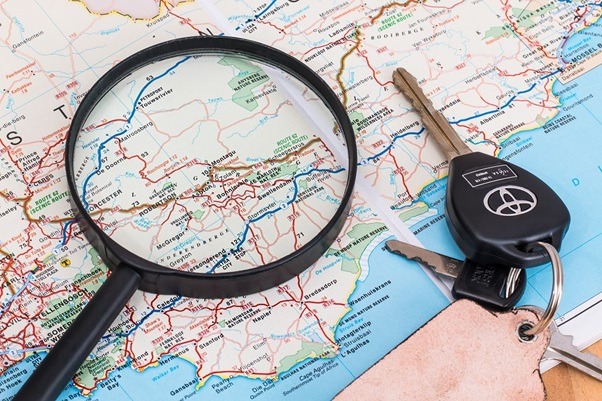Driving your own car allows you to have a lot of fun and independence on the road when heading to your vacation destination. You can choose to take the most scenic route, you can stop for breaks whenever you like, and it’s easy to fit additional activities like shopping for souvenirs or stopping at local attractions along the way. However, it’s important to learn some legal tips before you set out to make your vacation even more enjoyable and stress-free.
1. Accidents Happen
You might be the most reliable driver there is, but unfortunately, that doesn’t mean other drivers will follow the rules of the road. If you get into an accident, make sure you know your legal rights and what to do next – especially if there are injuries involved. The lawyers from www.cainlaw-okc.com advise that since it’s not always easy getting the compensation you need after an accident, knowing what steps to take in order to be better able to protect yourself is important. It’s no secret that even minor car accidents are incredibly stressful, so knowing what to do in advance can help you navigate a difficult situation with as much ease as the situation allows for.
Chances are nothing bad will actually happen on your trip, but if you do get into an accident, you should always know your rights, take pictures of the car damage as well as your injuries, get the medical assistance you need, and contact your lawyer. This way, you’ll be better able to handle the situation. In addition, make sure your car insurance is up to date and that you have emergency contacts listed for yourself as well as other family members who will need to know about your accident. While knowing what steps to take after an accident can feel overwhelming or stressful, being prepared always makes a difference. Once you are done with your part, you will need to seek legal advice from professionals, especially if you’ve been charged for a DUI case. You can learn more here about how they can help you streamline the entire process.
2. Driving Or Driving Under The Influence
Different places have different levels of scrutiny when it comes to drinking and driving. The law differs between countries, but also between different states as well. Depending on your location, you might be fine having a beer before driving, while in other places that might be considered DUI – and nobody wants that on their track record. That’s why it’s important to learn the law surrounding DUI in the state where you intend to drive to your vacation destination. Of course, regardless of the legal limit, if you’re already tired it’s best to avoid any alcohol. Similarly, if you think you simply aren’t in the best position to be driving after having a few – the safest thing to do would be to sleep it off or wait for the effects to wear off.
It’s important to note that in most places, you are obliged to comply with police officers asking you to take a breathalyzer test if they suspect you’ve been drinking. Knowing the legal limits can keep you out of trouble – which will definitely make your road trip more enjoyable.
3. (Overly) Tinted Windows
Not everyone has tinted windows, but if your car does, it’s important to check the rules about it before setting out. In some places, the law says that you can only have a certain percentage of opacity. In others, there isn’t a legal requirement about window tinting at all. Tinted windows are a valid reason for getting pulled over, and if this happens to you, you want to make sure you’re within your rights and not breaking any laws. While this really shouldn’t happen, sometimes traffic officers have a quota to fill, and if they see out-of-state plates, they might pull you over over this, even if you’re within your rights.
4. Talking Or Distracted Driving
In a similar vein, you should know what kind of distractions you’re able to handle while driving in order to make sure you stay safe on the road. More than that though, in some cases, it’s legal to talk on your phone if you have a hand-free device. In other places, you can’t have any electronics on you while driving at all. While this might seem a bit too strict if you’re using GPS or playing music from your phone, there really isn’t much you can do about it. Make sure to learn the law of where you’re going to prevent being pulled over and fined just because you misunderstood the law.
5. Complying With Additional Measures
As we’ve all become aware, there can be certain situations where there are extra measures in place that you need to follow in order to avoid consequences. If you’re traveling with other people, it’s important to check how many people are allowed to be in one car. For example, some countries allow you to carry up to four people in one car, while others limit that number to less in order to avoid larger gatherings. If you’re crossing borders, finding out the requirements of the country you’re crossing into is important, too. You don’t want to be stuck at customs because you didn’t learn this one crucial detail about your vacation destination before you left home.
Whether you’re going on a vacation or not, it’s always a good idea to be aware of your legal rights and obligations. However, it’s even more important in this case since you want to be able to fully enjoy your time away from home and not have to worry about anything. Remember to check up on this important stuff before setting out, and don’t hesitate to contact a lawyer in your area if you’re unclear about anything.

